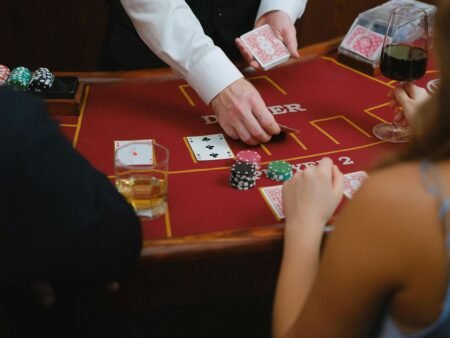Introduction
What is it about the lottery that captivates the imagination of millions worldwide? Whether it’s the thrill of the draw or the promise of an instant windfall, lotteries have become a global phenomenon. Let’s dive into the intricate world of lotteries, exploring their history, allure, impact, and the many dimensions that surround this fascinating game of chance.
The Historical Background of Lotteries
dear lottery have a rich history dating back to ancient civilizations. The earliest recorded lottery was held in China during the Han Dynasty between 205 and 187 BC, believed to have helped fund major government projects like the Great Wall. Over the centuries, lotteries spread across Europe and eventually to the Americas, evolving into the modern systems we see today.
The Allure of the Dear Lottery
Dreams and Aspirations
The lottery represents a beacon of hope for many. It’s a tantalizing ticket to dreamland, offering a glimpse of a life free from financial worries. The allure lies in its simplicity: a small investment with the potential for a massive return.
The Psychology Behind Lottery Participation
Why do people play the lottery despite the overwhelming odds? It’s about more than just money. The anticipation, the daydreams of a better life, and the excitement of the draw create a potent mix of emotions. This psychological allure keeps players coming back.
How Lotteries Work
Different Types of Lotteries
Lotteries come in various forms, including national, state, and local draws. Each type has its own set of rules, prize structures, and odds of winning. Popular formats include number draws, scratch cards, and instant lotteries.
The Mechanics of Lottery Draws
Lottery draws are meticulously organized to ensure fairness and transparency. From the selection of winning numbers to the distribution of prizes, each step is designed to maintain integrity and trust in the system.
Economic Impact of Lotteries
Revenue Generation for States
Lotteries are a significant source of revenue for many governments. The funds generated often support public services such as education, healthcare, and infrastructure. This financial boost is particularly valuable in times of economic hardship.
Impact on Local Economies
Beyond government revenue, lotteries can stimulate local economies. Small businesses, such as convenience stores and newsagents, benefit from increased foot traffic and sales of lottery tickets.
Lottery Winners: Stories and Statistics
Famous Lottery Winners
From ordinary individuals to those already wealthy, lottery winners come from all walks of life. Stories of winners like Mavis Wanczyk, who won the largest single-ticket Powerball prize in history, capture the public’s imagination.
The Reality of Winning: Statistics and Odds
Despite the glamour of winning, the odds remain daunting. The probability of hitting the jackpot is often one in millions. Most players win smaller prizes, if anything at all, underscoring the game’s unpredictable nature.
The Social Impact of Lotteries
Positive Social Contributions
Lotteries often fund social programs and charitable causes, contributing to the community’s welfare. Scholarships, public projects, and cultural initiatives are frequently supported by lottery revenues.
Criticisms and Controversies
However, lotteries are not without their critics. Concerns about addiction, financial mismanagement, and the disproportionate impact on low-income communities raise ethical questions about the role of lotteries in society.
The Legal Landscape of Lotteries
Regulations and Legalities
Lottery regulations vary widely across different jurisdictions. In some countries, lotteries are state-run monopolies, while others allow private operators under strict oversight. These laws are designed to protect players and ensure fair play.
Differences Between Countries
The legal status and popularity of lotteries differ globally. For instance, while lotteries are widespread in Europe and North America, they are restricted or banned in several countries due to religious or moral objections.
The Ethical Debate
Is the Lottery a Form of Gambling?
The classification of lotteries as a form of gambling is a contentious issue. While some view it as a harmless pastime, others argue that it fosters unhealthy gambling habits and exploits vulnerable populations.
Ethical Considerations
Ethically, the lottery raises questions about fairness and social responsibility. Is it justifiable to promote a game that statistically benefits the few at the expense of the many?
Strategies for Playing the Lottery
Popular Strategies and Myths
From picking birthdays to using mathematical patterns, lottery strategies abound. However, no method guarantees success, and many so-called strategies are based more on myth than fact.
Tips for Responsible Play
Playing the lottery should be fun, not a financial strategy. Setting limits, playing occasionally, and treating it as entertainment can help ensure a healthy approach to lottery participation.
Technological Advancements in Lotteries
Online Lotteries
The digital age has revolutionized lotteries, with online platforms making it easier to participate. These advancements offer convenience but also raise concerns about security and responsible play.
The Future of Lottery Technology
Future innovations might include blockchain for enhanced transparency, AI for predictive analysis, and virtual reality for immersive draw experiences, all aimed at maintaining player engagement and trust.
Lottery Scams and How to Avoid Them
Common Lottery Scams
Scammers often prey on the hopes of lottery players. Common scams include fake winning notifications and phishing attempts. Being aware of these schemes is crucial for staying safe.
Tips for Staying Safe
Never share personal information or send money to claim a prize. Verify any lottery win through official channels and be cautious of unsolicited contacts claiming you’ve won.
The Global Lottery Market
Lotteries Around the World
From the EuroMillions to Japan’s Jumbo Draw, lotteries are a global phenomenon. Each market has unique characteristics, reflecting local cultures and preferences.
Comparative Analysis
Comparing different lotteries reveals insights into consumer behavior and regulatory approaches, highlighting the diverse ways in which lotteries operate globally.
Personal Reflections
Why People Love or Hate the Lottery
The lottery evokes strong emotions. Some love the thrill and potential, while others criticize it for fostering false hope and financial irresponsibility. These diverse opinions reflect personal experiences and societal values.
Personal Stories and Anecdotes
Stories from lottery players, whether they won big or lost consistently, provide a human touch to the broader discussion, illustrating the profound personal impact of the game.
Conclusion
The Dual Nature of Lotteries
Lotteries are a blend of excitement and controversy, hope and risk. They offer a glimpse into human nature, revealing our desires, dreams, and the lengths we’ll go to achieve them.
Final Thoughts
Whether you see the lottery as a harmless game or a societal issue, its impact is undeniable. As with all forms of gambling, the key lies in balance and responsible play.
FAQs
What are the chances of winning the lottery?
The odds of winning vary depending on the lottery, but they are typically very low, often one in millions for major jackpots.
How are lottery winnings taxed?
Lottery winnings are taxed differently depending on the country. In the US, for instance, winnings are subject to federal and state taxes.
Can lottery winners stay anonymous?
Some jurisdictions allow winners to remain anonymous, while others require their identities to be made public for transparency.
What happens to unclaimed lottery prizes?
Unclaimed prizes are usually returned to the prize pool or used for special promotions and community programs, depending on the lottery’s rules.
Are there strategies to increase the chances of winning?
While there are no guaranteed strategies, playing responsibly and understanding the odds can help you make informed choices. Remember, the lottery is a game of chance.









